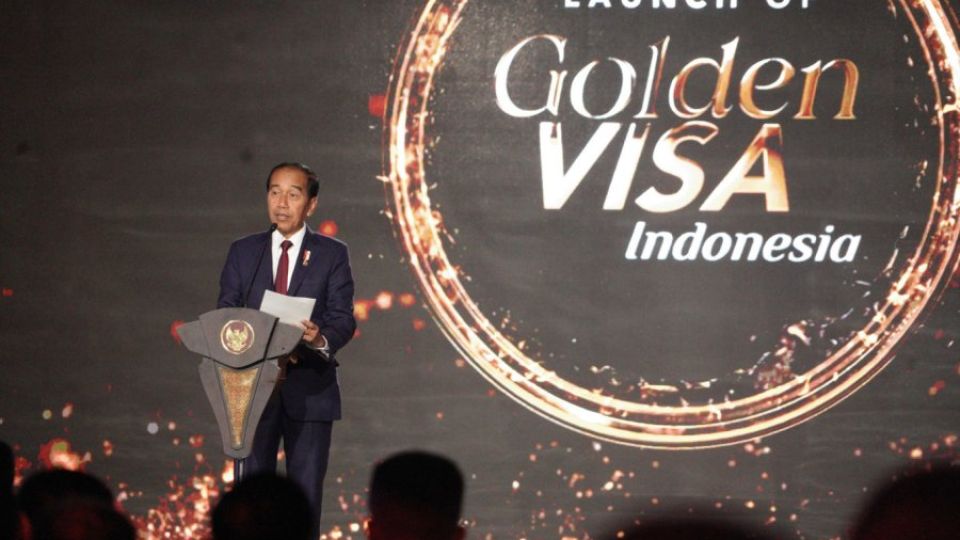December 18, 2024
JAKARTA – The Golden Visa scheme introduced this year has not brought as much investment into the country as hoped, according to the year-end report from the Directorate General of Immigration.
“The investment [from the golden visa program] is Rp 9 trillion [US$561.7 million] as of the end of this month,” the immigration authority’s director for stay permits, Jaya Saputra, told reporters at the year-end event held in Jakarta on Tuesday, referring to the investment expected from the 471 so-called golden visas issued so far.
That number is up from the 466 long-term stay permits issued as of the end of November.
When the Directorate General of Immigration launched the scheme in July, it had set an ambitious goal for investments, which are a condition for receiving the permit, but the amount secured so far is less than half the amount targeted.
At the launch ceremony on July 25, Silmy Karim, who served as immigration director general at the time, revealed that 300 foreign nationals had already received a golden visa and that the government had secured at least Rp 2 trillion worth of investments from those applicants.
He set a target of welcoming 1,000 golden visa recipients this year, according to a kompas.com report.
The golden visa program was launched by then-president Joko “Jokowi” Widodo to attract well-heeled foreigners and was promoted with the somewhat awkwardly worded slogans “invest while stay” and “productive while stay”.
“But keep in mind that [these visas] are only for high-quality travelers, so [authorities] must carefully select and evaluate the contribution [of each applicant],” Jokowi said at the July event.
He also explained that the golden visa initiative aimed to create a multiplier effect for the Indonesian economy by facilitating investment from foreign nationals.
Read also: Nearly 500 ‘golden visa’ applications since launch, immigration office says
Meanwhile, the Immigration Directorate General also reported that visa services in the country had contributed significantly to rising non-tax revenue.
Speaking at Tuesday’s even on the publication of the year-end report, interim immigration director general Saffar Muhammad Godam explained that the authority had recorded the highest amount of non-tax state revenue so far at Rp 8.5 trillion, up 12.7 percent from last year.
Visa services contributed 56 percent of the total revenue, followed by passport services at 28 percent and other services at 16 percent.
As of Dec. 10, the immigration office had issued more than 4.6 million on-arrival visas, 463,000 visitor visas and more than 62,000 limited stay visas.
“The most significant contribution [for non-tax revenue] comes from visa services, accounting for Rp 4.82 trillion, followed by passport services at Rp 2.3 trillion and other immigration services at Rp. 1.4 trillion,” Saffar noted.
Saffar also presented the figures for residency permits this year. The number of visit stay permits (ITK) exceeded 9 million this year, up 31 times from last year.
The number of temporary stay permits (ITAS) increased by 40 percent to 259,944 and permanent stay permits (ITAP) tripled to 6,437.
Australians topped the list for residency permits with 1.5 million documents issued, followed by China with 1.2 million and then Malaysia, Singapore and India.
Read also: Indonesia facilitates entry for Singaporean permanent residents
The immigration authority highlighted several service innovations introduced this year, including e-gates at Soekarno-Hatta International Airport serving Jakarta and at Bali’s I Gusti Ngurah Rai International Airport, adding that the automated terminals were also set up in Jakarta to streamline the passport application process at immigration offices.
In addition, the directorate general has sought to upgrade its online services with various electronic permits, including and electronic visa on arrival (e-VOA), e-ITK, e-ITAS and e-ITAP.


